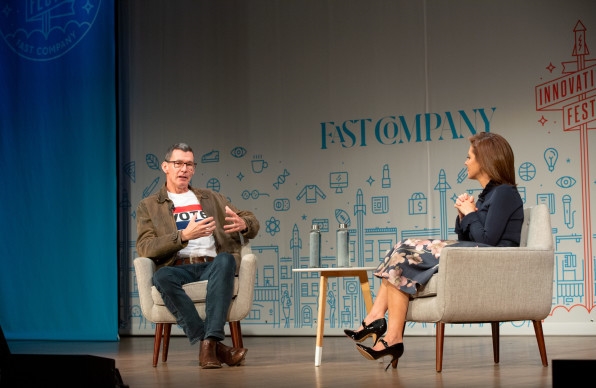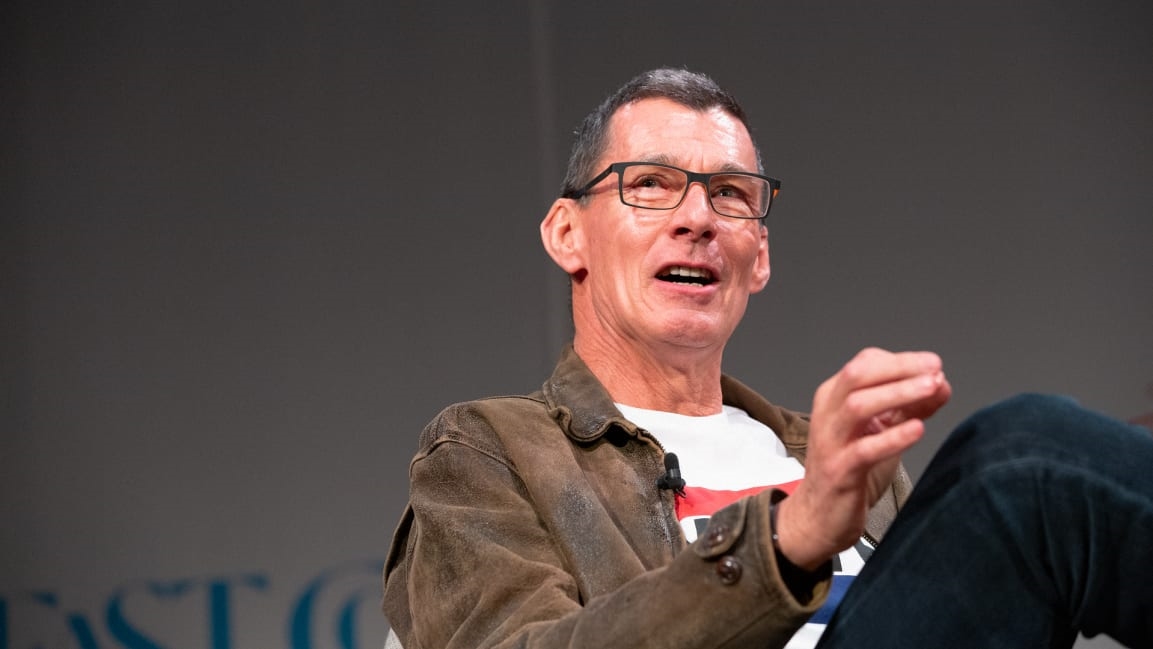Levi CEO Chip Bergh wants you to give your employees time to vote
On November 6, employees of Levi Strauss & Co. won’t have to choose between voting and going to work. Speaking at the Fast Company Innovation Festival on Thursday, president and CEO Chip Bergh said Levi’s was giving its employees up to five hours of paid time off to cast their ballots on Election Day.
And Levi’s isn’t stopping there. The company teamed up with Patagonia on the “Time to Vote” campaign, which prompted more than 200 companies to grant time off for their employees. (“If Walmart can do it, anyone can do it,” Bergh quipped.) Levi’s has recruited celebrities and influencers to spread the word about voter registration and has worked with HeadCount to help sign up voters at concerts. Bergh said about 40 Levi’s stores even had voter registration booths.
In other words: Bergh doesn’t want to give any of his employees–or anyone, really–an excuse not to vote. “The biggest issue to democracy is apathy,” Bergh said. “The winning candidate during the 2016 presidential election was apathy. Forty percent of voters voted for apathy; they didn’t show up, even though they could have. A lot of people want to complain about government. The best place to complain is the voting booth.”
But Levi’s is selling more than just non-partisan calls to action. One of the causes most important to Bergh is gun violence–and in 2016, he wrote an open letter asking customers not to bring guns into Levi’s stores. At the time, Bergh heard from thousands of NRA vendors who claimed they would stop buying Levi’s products. (He also received positive feedback from customers who were proud to see Levi’s take that stance.) “I’m not saying we should repeal the Second Amendment,” he said. “And I’m not saying gun owners are bad. But we need responsible laws.”

This September, Levi’s doubled down on its commitment to fighting gun violence through the Safer Tomorrow Fund, which would put $1 million toward nonprofits and youth activists. Levi’s is also partnering with Everytown for Gun Safety to bring together other business leaders who are committed to mitigating gun violence.
“My hope is that other CEOs are going to follow, and that we will encourage the youth who are now marching and emboldened to take this issue on–and empower them to make a change,” Bergh said. “I feel like my generation has let the next generation down. But there’s hope because the next generation sees this as the central issue in their lives. And they’re going to do something about it.”
Bergh insisted social advocacy has always been the Levi’s way. (He cited the desegregation of Levi’s factories before the Civil Rights Act was passed, for example, and Levi’s extending benefits to same-sex couples.) “Having the courage to stand up and take a stand has always been part of our lifeblood,” he said. “It’s who we are. Our employees expect it.”
It doesn’t hurt that since Bergh came on board in 2011, Levi’s has reduced its net debt from about $2 billion to $300 million; last year, the business grew about 8%, and Bergh claimed that number will be in the double digits this year. Still, wading into hot button issues like gun control and immigration–another political hot potato Levi’s has been vocal on–could cost Levi’s customers. “That’s a risk we’ve decided to take,” Bergh said. His stance is that corporate entities have a responsibility to use their platforms for good, even if it means alienating some consumers.
“In a world that is increasingly more divided, where governments are pulling away from some of their responsibilities to society, CEOs have a moral obligation to weigh in,” Bergh said. “We do have clout, and we do have a voice. To stand on the sidelines on some of these issues, we’re not fully fulfilling what is possible in our roles as CEOs.”
(60)



